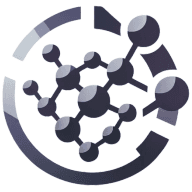Nanotechnology, the science of manipulating matter at the atomic and molecular scale, holds immense potential for innovation. Yet, its research and development journey is not without challenges. This blog post will delve into the hurdles faced in nanotechnology research and development, offering insights into the complexities of this fascinating field.
The Complexity of Nanoscale
Nanotechnology operates at an incredibly small scale, typically between one and 100 nanometers. To put this into perspective, a single human hair is approximately 80,000 nanometers wide. Working at such a minuscule scale presents a unique set of challenges.
The first hurdle is the sheer difficulty of manipulating and controlling matter at the nanoscale. Traditional tools and techniques often prove inadequate, necessitating the development of specialized instruments. For instance, electron microscopes, which can magnify up to two million times, are essential for visualizing nanoscale structures.
Moreover, at the nanoscale, materials can behave in unexpected ways. Gold, for example, melts at different temperatures depending on the size of the gold nanoparticles. Such unpredictable behavior adds another layer of complexity to nanotechnology research and development.
Ethical and Societal Implications
Nanotechnology's potential to revolutionize industries from medicine to electronics is exciting. However, it also raises significant ethical and societal concerns.
One of the primary concerns is the potential health and environmental risks posed by nanoparticles. Due to their small size, nanoparticles can easily enter the human body and the environment, potentially causing harm. The long-term effects of nanoparticle exposure are still largely unknown, making it a contentious issue.
Additionally, there are concerns about the societal implications of nanotechnology. As with any disruptive technology, nanotechnology could lead to job displacement in certain sectors. Balancing the benefits of nanotechnology with its potential societal impact is a significant challenge.
Regulatory and Policy Challenges
The regulatory landscape for nanotechnology is complex and often unclear. This is partly due to the novelty of the field and the lack of understanding about the potential risks and benefits of nanotechnology.
Regulators face the challenge of developing policies that encourage innovation while protecting public health and the environment. This is a delicate balance, as overly restrictive regulations could stifle innovation, while lax regulations could expose the public and the environment to potential harm.
Moreover, nanotechnology is a global field, and international cooperation is essential for its development. However, harmonizing regulations across different countries is a complex task, given the diverse legal and regulatory environments.
Technical Challenges
Nanotechnology research and development also face a host of technical challenges. One of the primary technical challenges is the lack of standardization in nanotechnology.
Standardization is crucial for the development and commercialization of any technology. However, in the case of nanotechnology, the lack of standard definitions and measurements makes it difficult to compare results across different studies. This hampers the progress of the field.
Another technical challenge is the difficulty of scaling up nanotechnology from the lab to industrial scale. Many nanotechnology applications are currently only feasible at a small scale, and scaling up these applications while maintaining their unique properties is a significant challenge.
Funding and Infrastructure
Funding and infrastructure are critical for the advancement of any scientific field, and nanotechnology is no exception. However, securing funding for nanotechnology research and development can be challenging.
Nanotechnology is a multidisciplinary field that requires substantial investment in specialized equipment and facilities. However, the high cost of such infrastructure can be a barrier to entry for many researchers.
Moreover, the long-term nature of nanotechnology research can make it difficult to secure funding. Many funding bodies prefer projects with immediate, tangible results, which is not always possible in nanotechnology research.
Skills and Training
The multidisciplinary nature of nanotechnology requires a workforce with a diverse range of skills. However, training and retaining such a workforce is a significant challenge.
Nanotechnology requires knowledge in fields as diverse as physics, chemistry, biology, and engineering. However, traditional education systems often do not provide the interdisciplinary training required for nanotechnology.
Moreover, the rapid pace of advancement in nanotechnology means that continuous training and upskilling are necessary. However, providing such training can be challenging, particularly in resource-constrained environments.
Navigating the Future of Nanotechnology
Despite the challenges, the potential of nanotechnology is undeniable. From revolutionizing healthcare to creating more efficient energy sources, the possibilities are endless. However, to realize this potential, it is crucial to address the challenges in nanotechnology research and development. By doing so, we can ensure that nanotechnology develops in a way that benefits society as a whole.

